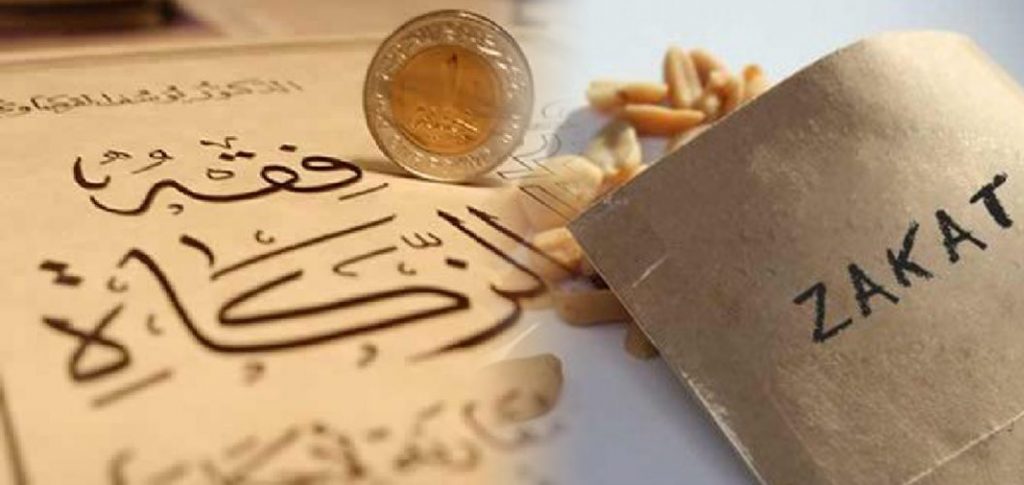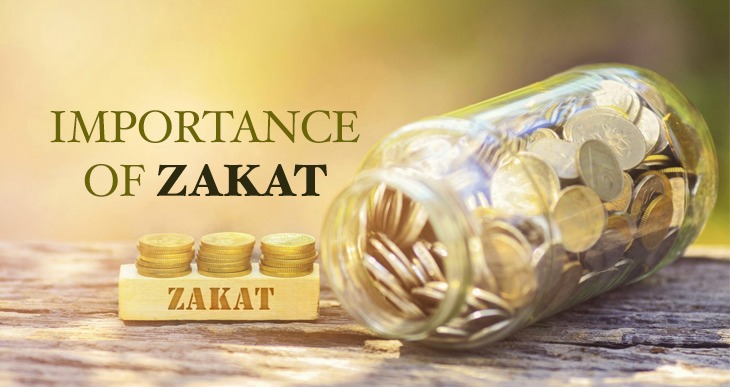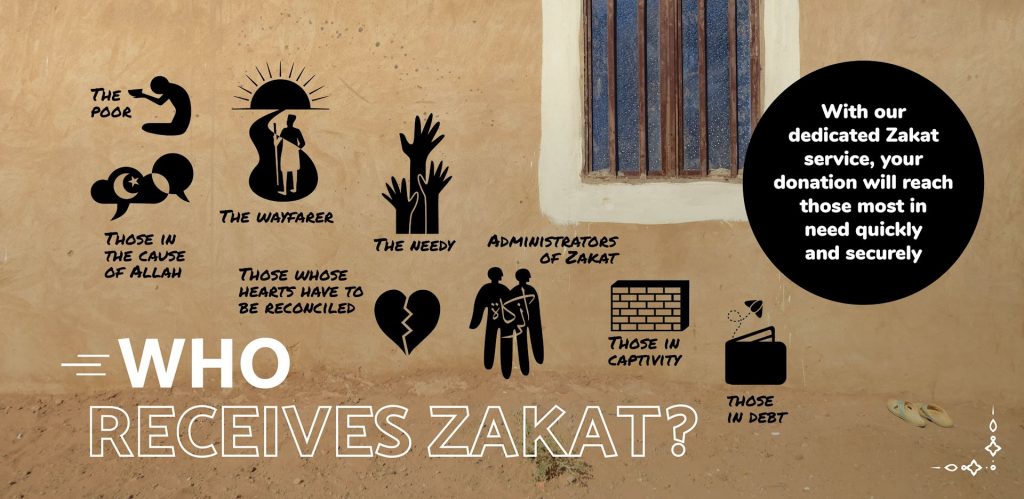Zakat - Rules of Zakat
Zakat - Zakaat - Zakat calculator - Islamic Tax - Zakat Rules - Zakat Meaning - Importance of Zakat in Islam - Zakat Donation
Zakat Basic Rules - How much zakat do you pay?
Zakat is a fundamental pillar of Islam and is one of the Five Pillars of Islam. It is an obligatory charity that Muslims are required to give to the poor and needy. The word “zakat” in Arabic means “purification” and “growth,” and the act of giving zakat is considered a means of purifying one’s wealth and gaining spiritual growth.
The significance of zakat is multifaceted. Firstly, it is a means of fulfilling the obligation of caring for those in need and contributing to the betterment of society. Zakat is seen as a way to redistribute wealth and ensure that everyone has their basic needs met. This obligation helps to create a sense of social responsibility and encourages Muslims to contribute to the welfare of their communities.
Secondly, zakat is a means of purifying one’s wealth and cleansing oneself of greed and attachment to material possessions. It is believed that giving zakat helps to cultivate humility, gratitude, and compassion in the heart of the giver.
Thirdly, zakat serves as a means of promoting social and economic justice. It is a reminder that wealth and resources are not owned solely by individuals but are part of a larger social fabric, and those who have more than they need have a responsibility to help those who are in need.
Finally, zakat serves as a reminder of the importance of gratitude and thankfulness. By giving zakat, Muslims recognize that their wealth and possessions are blessings from God and that they have a responsibility to use these blessings to benefit others.
Zakat is an integral part of the Islamic faith and practice. It serves as a means of fulfilling the obligation of caring for those in need, promoting social and economic justice, cultivating spiritual growth, and fostering gratitude and thankfulness. The practice of giving zakat is an important way for Muslims to show their commitment to the teachings of Islam and to contribute to the betterment of their communities.
“And establish prayer and give Zakat, and whatever good you put forward for yourselves, you will find it with Allah.” (2:110, Quran)

How to Calculate Zakat
Calculating Zakat can be a bit complex, as it requires an understanding of different types of wealth and assets, as well as their corresponding Zakat rates. Here are some general guidelines for calculating Zakat:
Determine the types of assets that are subject to Zakat: Zakat is due on certain types of assets that meet a specific criteria. The types of assets that are subject to Zakat include cash, gold and silver jewelry, stocks, business inventory, and real estate that is purchased for the purpose of resale.
Determine the value of your Zakatable assets: Once you have identified your Zakatable assets, you need to determine their total value. For example, if you have cash, you would add up the balances in all of your accounts.
Calculate your Zakat rate: Zakat rates vary depending on the type of assets you own. For example, the Zakat rate for cash is 2.5%, while the rate for gold and silver jewelry is 2.5% of the total value of the jewelry that you have owned for a full lunar year (hawl).
Calculate your Zakat liability: Once you have determined the value of your Zakatable assets and the corresponding Zakat rates, you can calculate your Zakat liability. For example, if you have $10,000 in cash, your Zakat liability would be $250 (2.5% of $10,000).
Pay your Zakat: Once you have calculated your Zakat liability, it is important to pay it as soon as possible. Zakat can be paid to qualified charitable organizations, or directly to individuals in need.
It is important to note that Zakat calculations can become more complex when dealing with assets like stocks, real estate, and business inventory. Additionally, Zakat rates and rules can vary based on local customs and interpretations of Islamic law. It is recommended that you consult with a qualified Islamic scholar or financial advisor for guidance on calculating your Zakat.
Who is Eligible For Zakat
According to Islamic teachings, there are eight categories of people who are eligible to receive Zakat. These categories are known as “asnaf” and are mentioned in the Quran:
The poor: Those who have no means to support themselves or their families and are in need of assistance.
The needy: Those who have some means to support themselves, but not enough to meet their basic needs.
Zakat collectors: Those who are appointed by the Islamic government to collect Zakat.
Those whose hearts are to be reconciled: These are individuals who are not Muslim but may be sympathetic to Islam, or non-practicing Muslims who may be encouraged to return to their faith.
Those in bondage: Individuals who are in debt and cannot repay it, or who are enslaved and seeking their freedom.
The wayfarer: Travelers who are in need of assistance while on a journey.
Those fighting in the cause of Allah: This category applies to Muslims who are fighting in a just war in the cause of Allah.
The poor who are employed to administer the funds: This category includes those who are employed to collect and distribute Zakat funds.
It is important to note that Zakat is not intended to be given to immediate family members, as it is the responsibility of the family to support one another. Additionally, Zakat should not be given to those who are wealthy or self-sufficient, as they do not meet the criteria for eligibility.
Who is Exempt from Zakat?
While Zakat is an obligation for Muslims who meet certain criteria, there are some exemptions from paying Zakat.
The following groups of people are exempt from paying Zakat:
The Poor and Needy: People who do not own enough wealth or assets to meet their basic needs and are not able to provide for themselves or their families are exempt from paying Zakat.
The Debtor: People who are in debt and have no means to pay off their debts are exempt from Zakat until they are able to pay off their debts.
The Convert: People who have recently converted to Islam and do not possess enough wealth or assets to pay Zakat are exempt until they acquire sufficient wealth.
The Traveller: People who are travelling and do not possess wealth or assets above the Nisab limit are exempt from Zakat until they return home.
The Elderly and Infirm: People who are elderly, disabled or infirm and cannot earn a livelihood are exempt from Zakat.
It is worth noting that the Zakat payer has the discretion to exempt someone from Zakat if they believe that the person is deserving of exemption due to their financial situation or circumstances. This can include people facing financial hardship, victims of natural disasters or conflicts, and others who may be in need.
How much is Zakat on cash? (Zakat on Cash and Bank Balances)
The amount of Zakat on cash is 2.5% of the total amount that has been held in possession for a full lunar year. This means that if a person has cash savings that have been in their possession for at least one lunar year and the total amount meets or exceeds the Nisab threshold, they must pay 2.5% of that amount as Zakat. The Nisab threshold is the minimum amount of wealth a person must have before they are required to pay Zakat, and it is currently equivalent to the value of 87.48 grams of gold or 612.36 grams of silver.
For example, if a person has cash savings of $10,000 that have been in their possession for a full lunar year and the current Zakat rate is 2.5%, they would be required to pay $250 as Zakat (i.e., $10,000 x 0.025). It is important to note that Zakat is not applied to cash that is used for personal or family expenses or that is held for business purposes, as it is only applied to cash savings that are above and beyond a person’s basic needs.
Zakat on Pure Gold and Gold Jewelry
Zakat on pure gold and gold jewelry is applicable if their value meets or exceeds the nisab threshold. The nisab threshold for gold is 87.48 grams, which is equivalent to the current market value of 3 ounces of gold.
If the total value of gold jewelry and other gold assets you possess, such as gold bars or coins, meets or exceeds the nisab threshold, then you must pay 2.5% of their total value as zakat. For example, if you have gold jewelry worth $10,000, then you must pay $250 as zakat (i.e., $10,000 x 2.5% = $250).
It’s important to note that zakat is only payable on gold that is intended for investment or savings purposes. Gold jewelry that is worn or used for personal adornment is not subject to zakat. However, if you own gold jewelry that is intended for investment purposes, such as gold coins or bullion, then you must pay zakat on their total value if it meets or exceeds the nisab threshold.

Do you have to give Zakat if you are poor?
In Islam, Zakat is an obligation on those who have a certain minimum amount of wealth (known as nisab) that has been in their possession for at least a year. If a person is poor and does not possess the minimum amount of wealth, they are not obligated to pay Zakat.
However, it is encouraged in Islam for those who are poor to give charity (sadaqah) according to their means, even if they are not obligated to pay Zakat. Giving charity is a virtuous act in Islam and is considered a means of purifying one’s wealth and earning the pleasure of Allah.
Is Zakat applicable on property?
Zakat is generally not applicable on property that is for personal use, such as a home or a car. However, if the property is meant for sale or investment purposes, then Zakat may be applicable on its value.
For example, if someone owns a rental property or a piece of land that they plan to sell for profit, then they would need to pay Zakat on the current market value of that property. The Zakat rate on such properties is usually 2.5% of the current market value.
It’s worth noting that the exact rules and regulations regarding Zakat may vary depending on the specific country or region, as well as the interpretation of Islamic scholars. It’s always recommended to consult with a qualified Islamic scholar or authority on matters related to Zakat.
Can we give Zakat to Masjid?
Yes, giving Zakat to a Masjid (mosque) is considered a permissible use of Zakat funds in Islam. Masjids serve as a central gathering place for Muslims to pray, learn, and build community, and supporting them through Zakat is considered a noble act of charity.
It is important to note that the funds should be used for the upkeep of the Masjid, including building maintenance, salaries for staff and imams, and other related expenses. The Masjid should also be transparent about how the Zakat funds are being used and ensure that they are distributed in accordance with Islamic guidelines.

What is the Nisaab?
Nisab is the minimum amount of wealth a Muslim must have before they are obligated to pay Zakat. It is calculated based on the current market value of gold or silver. The Nisab amount for gold and silver is different, and it may vary in different regions and countries depending on the current market rates.
In general, the Nisab for gold is equivalent to 3 ounces of gold (87.48 grams) and for silver, it is equivalent to 21 ounces of silver (612.36 grams). If a person’s wealth exceeds this minimum threshold after accounting for debts and expenses, they are obligated to pay Zakat at the prescribed rate of 2.5% on their total wealth that has been held for a lunar year.
When does the zakat year begin?
The zakat year begins on the date you were first in possession of wealth above the nisab. This will be your seed date; whenever it comes around, you will have to calculate zakat, irrespective of any fluctuations in the amount of wealth in your possession. The only situation in which your seed date will change is if you were to become bankrupt and lose all your assets and belongings. In this situation, your new seed date will begin when you are once again in possession of wealth above the nisaab. If you are unsure of your seed date, estimate it to the best of your ability.
